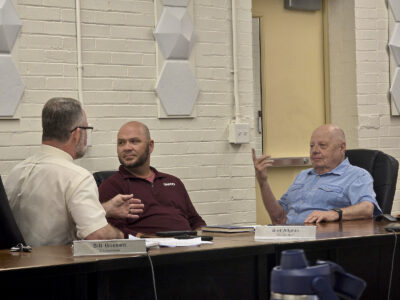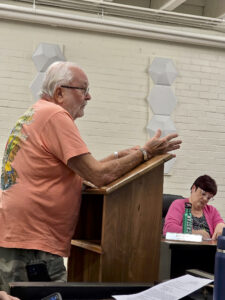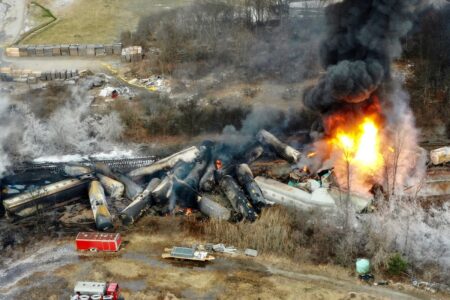Marietta City Council acts on rezoning, payroll updates, public safety funding
- (Photo by Gwen Sour) From left, Councilmen Bill Gossett, Bret Allphin and Mike Scales share a discussion before the start of Thursday night’s Marietta City Council meeting.
- (Photo by Gwen Sour) Ken Snyder shares his concerns about flooding on Lee Avenue to Marietta City Council on Thursday evening.
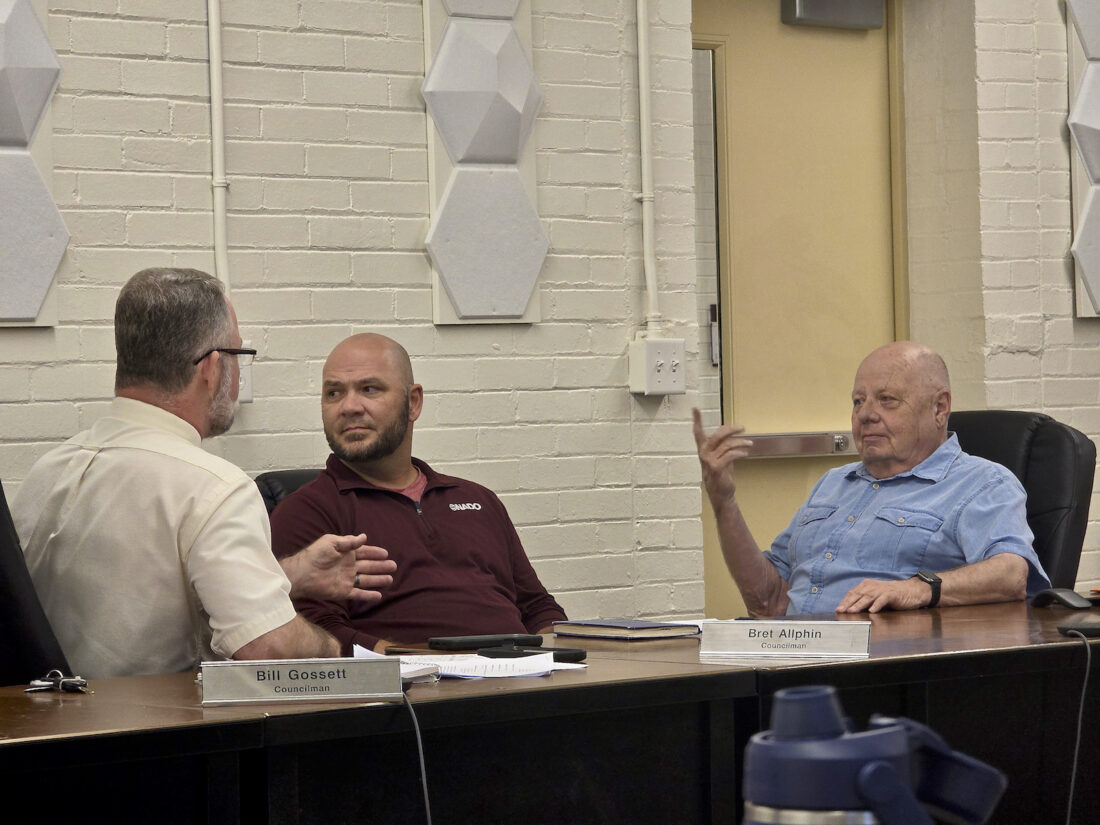
(Photo by Gwen Sour) From left, Councilmen Bill Gossett, Bret Allphin and Mike Scales share a discussion before the start of Thursday night’s Marietta City Council meeting.
Marietta City Council on Thursday adopted a series of measures ranging from rezoning property and approving multiple fund transfers to creating a new civilian position in the police department.
Council narrowly approved Ordinance 210, which changes two parcels of real estate from a C-4 Downtown Commercial District to a C-6 Heavy Service District. The measure passed on a 4-3 vote, with council members Erin O’Neill, Harley Noland and Ben Rutherford opposed.
Councilman Bret Allphin, who moved for adoption, reminded colleagues that the matter had been reviewed multiple times.
“We held two public hearings on this, and folks joined us to speak about it on all sides,” Allphin said. “The Planning Commission also reviewed the project and sent back recommendations.”
Council unanimously adopted Resolution 70, encouraging the city auditor to implement an automated payroll system through New World E-Suite.
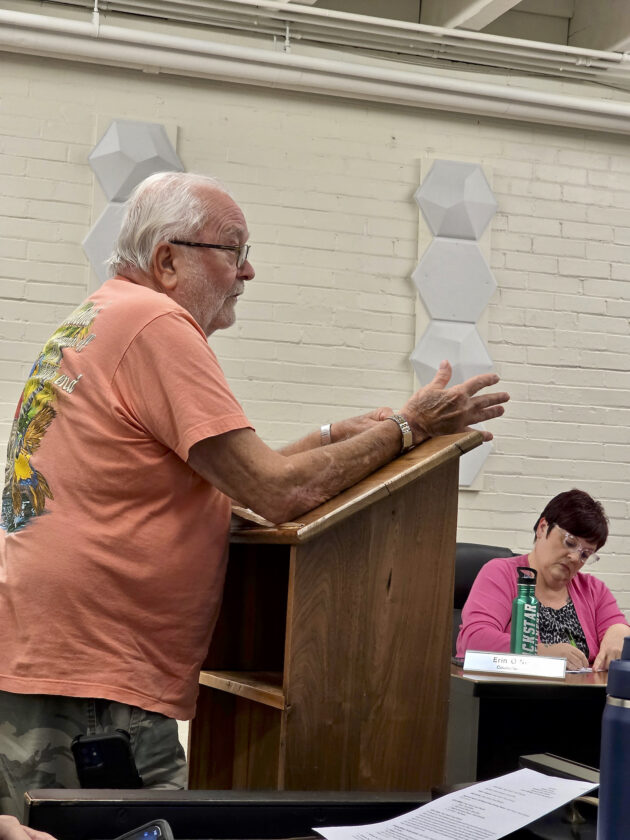
(Photo by Gwen Sour) Ken Snyder shares his concerns about flooding on Lee Avenue to Marietta City Council on Thursday evening.
Supporters described it as a step toward efficiency in handling employee time and attendance.
Three appropriation measures — Ordinances 233, 234 and 235 — were fast-tracked after council suspended normal readings.
Ordinance 233 moved more than $172,000 from the stabilization fund into the Capital Improvement Fund. Councilman Mike Scales said the move will help cover projects and debt service.
“Our Capital Improvement Fund is anemic,” he said. “We have some big projects coming, including fleet leases, and this puts us in a stronger position.”
Ordinance 234 allocated funds to recreation, police training, community development, and the Marietta Community Center at the Armory.
Scales noted that recreation finances have improved. “For the first time, we may actually show a positive balance in our recreation account,” he said.
Ordinance 235 funded new security equipment through the courts. Council members clarified the correct figure was $42,691.89 after a discrepancy in paperwork.
Council also unanimously passed Ordinance 230, authorizing a license for outdoor dining space at Original Pizza Place on Second Street and allowing limited alcohol service within the licensed area. Allphin said he spoke directly with the restaurant’s management.
“They’ve received and agreed to the terms of the license,” he said, noting the measure would support downtown dining.
Ordinance 236, tied to the Safe Routes to School program, authorized pedestrian and bicycle safety improvements.
Council members passed it on an emergency timeline to meet state deadlines.
Council also approved Ordinance 237, establishing a full-time civilian property room manager in the police department. The position is currently filled by an officer who is retiring.
Council unanimously passed Resolution 73, forgiving a $95,314 advance made from the General Fund to the Fire Levy Fund in 2016. Scales explained the change reflects the city’s current financial position.
“The General Fund is healthy, and the Fire Levy Fund could use some support,” he said. “It’s time we just forgive this.”
Other measures, including Resolution 74 (a memorial bench installation in Gutberlet Park) and Resolution 75 (establishing a payroll policy in years with 27 pay periods), received first readings but no further action.
Public comment centered on long-standing drainage problems in the Rathbone and Lee Avenue area.
“I’ve had three inches of water in my basement just six weeks ago,” said Marietta resident Ken Snyder, who told council he has documented flooding issues for more than 25 years.
“I’ve lived in this town since 1968, I’ve paid taxes, and I can’t sell my property because of this. It’s getting worse and worse.”
Snyder said multiple city studies have been done over the years, but little has changed.
“You’ve had money twice to fix it, and you’ve never done it,” he told council. “I’m really sick and tired of it. If you lived up there, you’d be tired of it too.”
Cheryl Snyder questioned whether residents were improperly altering drainage paths and worsening the problem.
“Is there a permit that people have to get before they cover up culverts or change their drainage?” she asked. “Because a lot of my neighbors have covered them up, and now the water doesn’t drain the way it should. It all runs down on us.”
The couple asked council to schedule a community meeting specifically to address the Rathbone area’s water problems.
The next regular council meeting is scheduled for Sept. 4 at 7:30 p.m.

